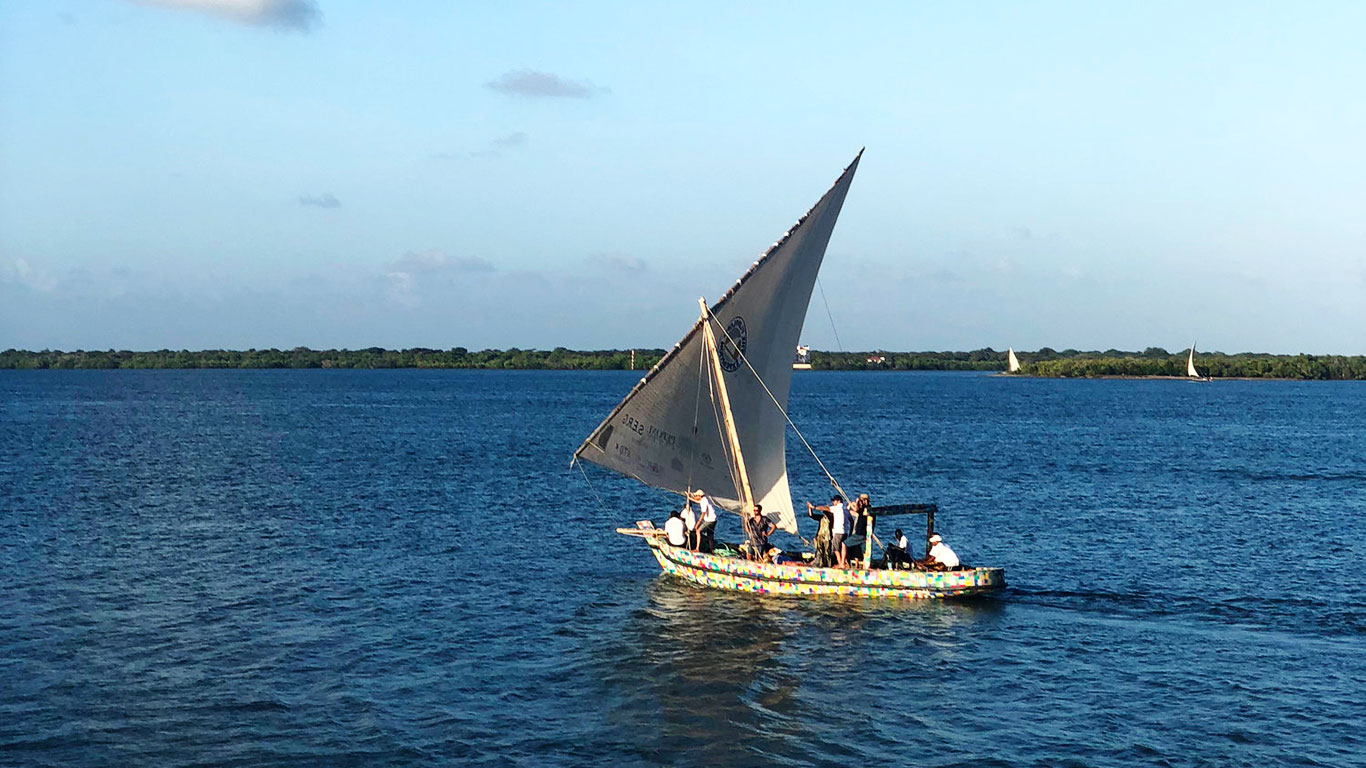
After fourteen days and 500 kilometers on the water, the Clean Seas-Flipflopi expedition has arrived at its final destination: the island of Zanzibar on the 7th February 2019. The nine-metre, rainbow-coloured dhow made entirely from re-used plastic and flip flops, collected from Kenyan towns and beaches, is an inspiring story of innovation to overcome one of the biggest challenges facing our world today: Plastic pollution.
Flipflopi’s team of sailors – led by captain Ali Skanda – arrived on the island just in time for the Sauti za Busara, or ‘African sounds of wisdom’ festival, a celebration of East African culture, creativity and values. “We are delighted to welcome UN Environment’s Clean Seas-Flipflopi expedition to Zanzibar. The voyage itself, and innovative spirit behind it, are symbolic of what we can do to make a difference,” said Ali Iddi, second Vice-President of Zanzibar. “Zanzibar is committed to the fight against plastic pollution and will continue to work closely with all its citizens to find solutions to our ever-evolving environmental challenges.”
The Flipflopi expedition left the Kenyan Island of Lamu on 23 January. Along the way, the crew docked at six Kenyan and Tanzanian coastal towns, where they were welcomed by local communities, schools and government officials. The momentum of the voyage has unleashed historical commitments in every port of call, including the official closing of the Kibarani dumpsite in Mombasa and the pledge of 29 establishments including 22 hotels, to minimize their plastic waste.
Now that the Flipflopi has reached the final port of the expedition, the boat will be prepared for a journey to the Kenyan capital of Nairobi, where Heads of State, environment ministers, environmental activists, innovators, NGOs, and CEO’s of multinational companies will gather for the Fourth United Nations Environment Assembly – the world’s highest-level environmental forum – from 11-15 March 2019. The next big expedition departing in 2021 from Lamu on the Kenya coast, the Flipflopi will sail south along the coasts of Kenya, Tanzania, Mozambique and onwards into South Africa taking between 3 and 4 months, to reach Cape Town.
Elewana Collection has made considerable efforts to reduce its carbon footprint on the world around us. In the last couple of years we have made great strides in reducing single use plastic, starting with the #banthebottle initiative, eliminating our use of plastic water bottles, and then at the beginning of 2018, we were the first property group in East Africa to eliminate the use of plastic straws across all our properties. We offer biodegradable paper straws and encourage guests to go to #warwiththestraw. Our Beach properties, Elewana AfroChic Diani and Elewana Kilindi Zanzibar continuously work with the local communities to clean the beaches and educate the school children in our Wildlife Warrior programs to be conscious of the environment.
5 Plastic Facts:
- 12.2 Million tonnes of plastic enters the Ocean every year
- A single plastic bag can take 500 years or more to degrade
- Only 14% of all plastic produced is recycled
- By 2020 the ratio of plastic to fish by weight will be 1:1
- Plastic can’t bio-degrade, it just breaks up into smaller pieces

